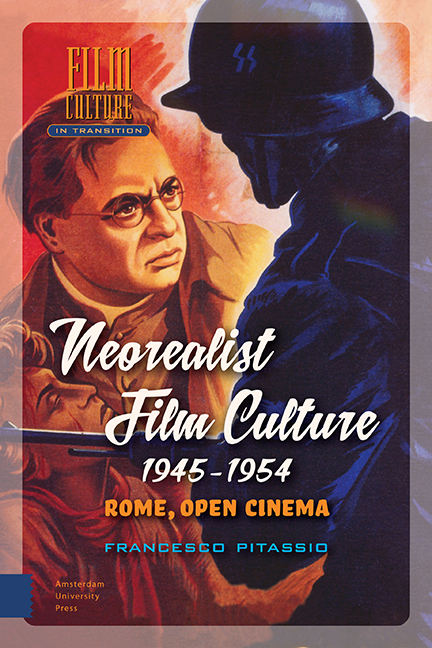Book contents
- Frontmatter
- Contents
- Acknowledgements
- Introduction: An Uncertain Direction. Neorealist Cinema and Transitional Culture
- 1 Locating the Real: National, International, and Transnational Neorealism
- 2 Lies of Memory: Post-war Culture, Remembrance, and Documentary Filmmaking
- 3 Looking at the Images: Neorealist Visual Culture
- 4 Actors, Non-professional Actors, Starlets, and Stars: Film Performance in the Neorealist era
- Bibliography
- About the Author
- Name Index
- Film Index
1 - Locating the Real: National, International, and Transnational Neorealism
Published online by Cambridge University Press: 21 November 2020
- Frontmatter
- Contents
- Acknowledgements
- Introduction: An Uncertain Direction. Neorealist Cinema and Transitional Culture
- 1 Locating the Real: National, International, and Transnational Neorealism
- 2 Lies of Memory: Post-war Culture, Remembrance, and Documentary Filmmaking
- 3 Looking at the Images: Neorealist Visual Culture
- 4 Actors, Non-professional Actors, Starlets, and Stars: Film Performance in the Neorealist era
- Bibliography
- About the Author
- Name Index
- Film Index
Summary
Abstract
The chapter considers neorealism as a cultural construct responding to historical needs. Neorealism aimed to mark a discontinuity with Fascism, rebuild the nation, and examine afresh its people, landscape, and neglected areas. For this reason, neorealism was a politically contested culture, producing both innovative works and formulaic but popular ones. In addition, the chapter scrutinises the role that neorealist film production played in post-war cultural diplomacy, which was based on mutual recognition among nations. Therefore, the chapter examines the international cultural exchange of Italian neorealism with countries on both sides of the Iron Curtain. Finally, the work focuses on the emergence of a transnational style in Europe and in the US, with neorealism holding a major role in it, together with film noir.
Keywords: Realism; national Identity; national-popular; landscape; international circulation; transnational cinema
An Address to the Audience
A man wearing a hat stares at the camera in close-up, with an absorbed expression on his face. Behind him, out of focus, female figures are moving. He starts speaking to the camera, describing rice plantations in northwestern Italy, which have existed throughout the centuries as in China or India, and where millions of women's hands saw to them. Then the man looks to his left, thoughtful, considering this hard work that has never changed through the centuries, in the water, the sun shining all day long. Finally, while his gaze wanders from his right to his left, the man declares that only women can handle this task because of their small, delicate hands, the same hands that sew and nurture babies. As he utters these last words, the camera tracks backwards, includes more women behind the man, now in full focus, while he reveals his identity and accordingly reframes his previous speech: he is a Radio Torino (Radio Turin) speaker, a station broadcasting an extraordinary radio programme. As the man declares his role (‘Here is Radio Torino speaking…’), women's voices out of frame burst into song, singing a popular rice-pickers’ ballad. The camera pans to the left, and we enter the film's narrative.
- Type
- Chapter
- Information
- Neorealist Film Culture, 1945–1954Rome, Open Cinema, pp. 37 - 140Publisher: Amsterdam University PressPrint publication year: 2019



